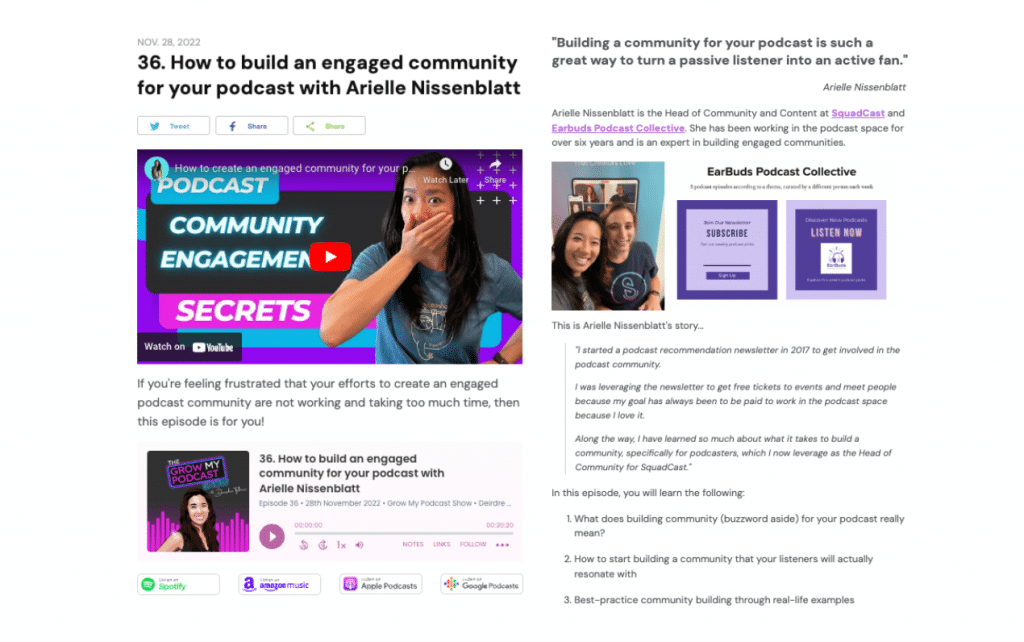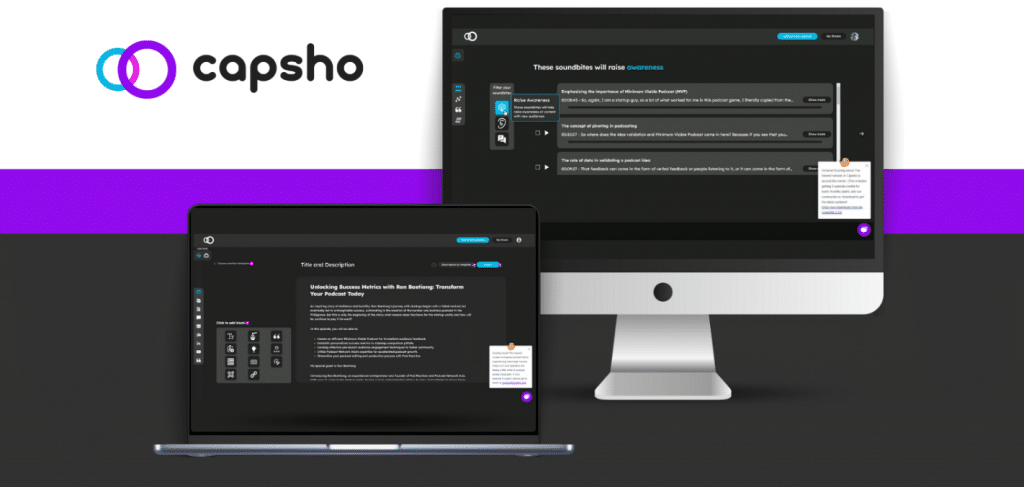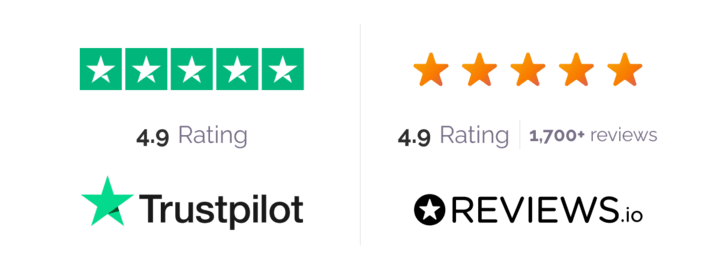As a podcaster, you might have realized that producing great audio content is just the first step towards building a successful podcast. To ensure your episodes reach a wider audience and engage listeners beyond the audio experience, it’s essential to accompany each episode with well-crafted show notes.
In this guide, we will walk you through the process of writing effective podcast show notes, covering everything from understanding what show notes are to implementing best practices that can help your podcast stand out.
Whether you’re a seasoned podcaster looking to enhance your show notes or a beginner eager to learn the ropes, this guide will provide you with the knowledge and tools you need to create compelling show notes that captivate your audience.

What are show notes?
Show notes are written summaries of individual podcast episodes. Many podcasters use the term ‘show notes’ interchangeably with the episode description inside the podcast players.
In this blog post, we define show notes as the episode-specific page on your podcast’s website.
These are more comprehensive and detailed and offer the benefit of driving traffic to a centralized location where listeners can access all your episodes and related content.
➡️ Here is an example for the Grow My Podcast Show.

Why should you write show notes?
There are two main reasons you should invest time and effort into crafting compelling show notes.
- They improve engagement from your existing audience. Providing a convenient place for listeners to snag the resources you’ve mentioned in the episode reinforces the value you provide and makes it easy for them to take the next step with you
- They enhance SEO and discoverability and attract new listeners. When you publish show notes on your podcast’s website or blog, search engines index the text, making your content more discoverable. If you strategically incorporate relevant keywords, rich media and backlinks, this will improve your podcast’s visibility in search engine results and attract new listeners.
Best practice for your show notes
A. Title & Hook:
Start your show notes with your episode title and a hook that entices potential listeners to tune in to the episode. You want to create enough curiosity that will make them want to close the loop by listening.
B. Episode Summary:
A succinct summary will help people who are skimming your content make a quick decision about whether they want to listen to this episode or not. This will help you qualify the right listeners for your episode.
C. Key Takeaways:
Including key takeaways in bullet points will provide a glimpse into the valuable insights from the episode and give your prospective listeners a reason to listen.
D: Detailed Points:
Consider including more detailed summaries of the key points you cover in the episode. This will capture audiences who prefer to read rather than listen and also help enhance discoverability and SEO.
E: Timestamps or Chapters
Include timestamps or chapters that indicate when specific topics are discussed during the episode. This will help listeners navigate directly to the content they are most interested in so they get immediate value.
F: Links to Resources:
If you or your guests mention any resources, such as books, articles, websites, or hosting sites, include relevant links in your show notes. This enables listeners to easily access and explore the recommended resources, enhancing their engagement and providing additional value beyond the audio experience.
G. Call to Action(s):
Incorporate a call to action (CTA) in your show notes to encourage your audience to take specific actions. This could include subscribing to your podcast, leaving a review, visiting your website, joining a mailing list, or participating in a giveaway or contest. CTAs help you deepen the connection with your audience and encourage them to take the next step.
H. Links to Back Catalog Episodes:
Promote your previous episodes by linking to relevant back catalogue episodes in your show notes. This encourages listeners to explore more of your content and discover episodes they might have missed. It also helps to create a cohesive podcast experience where listeners can easily navigate between episodes on related topics.
I. Transcript:
Consider including a transcript of the episode in your show notes. Transcripts provide accessibility for individuals with hearing impairments and also serve as a searchable text for search engines. Transcripts can significantly improve your podcast’s SEO and make your content more discoverable to a wider audience.
If this sounds like a lot of work, consider using an AI-powered tool like Capsho. Capsho will create draft show notes for you and give you the flexibility to make them as short or as long as you like.
The best part is it will all be based on the podcast episode file you upload and it will create all the other marketing assets you need to market and grow your podcast.
✨ Click here to learn how to create transcripts for free.

If this sounds like a lot of work, consider using an AI-powered tool like Capsho. Capsho will create draft show notes for you and give you the flexibility to make them as short or as long as you like.
The best part is it will all be based on the podcast episode file you upload and it will create all the other marketing assets you need to market and grow your podcast.
✨ Click here to get a free Podcast Discoverability Audio Guide and three free credits for Capsho.



